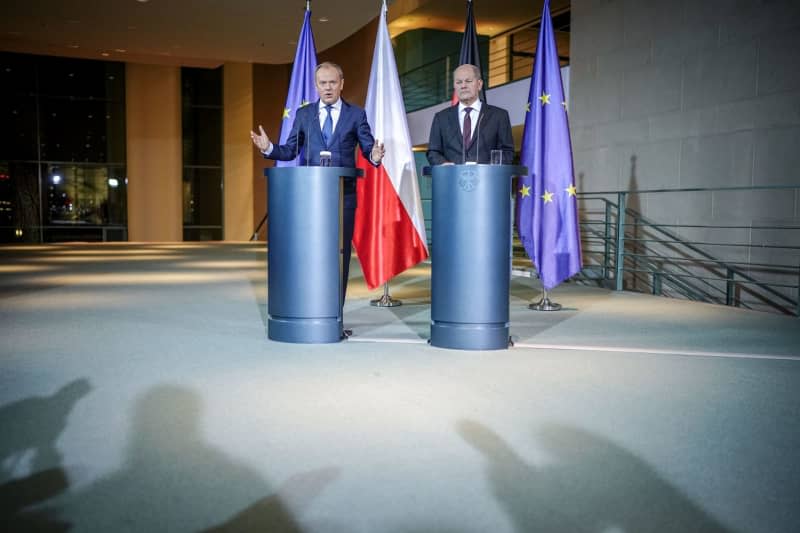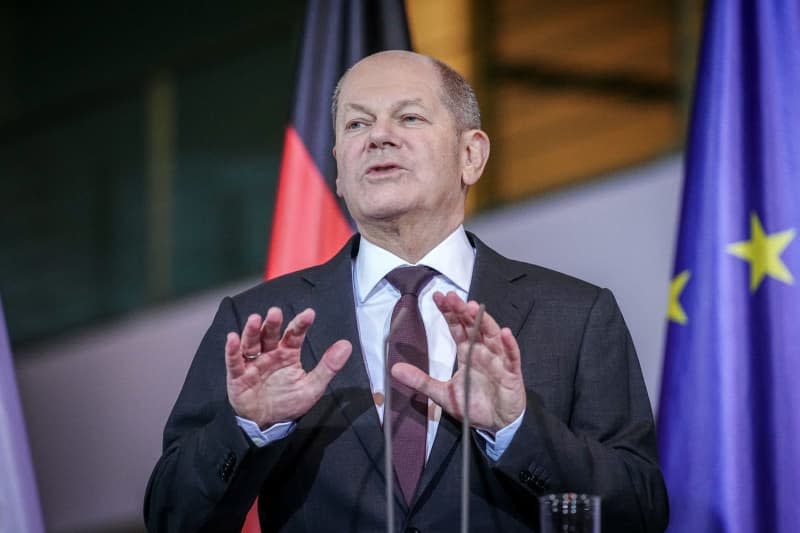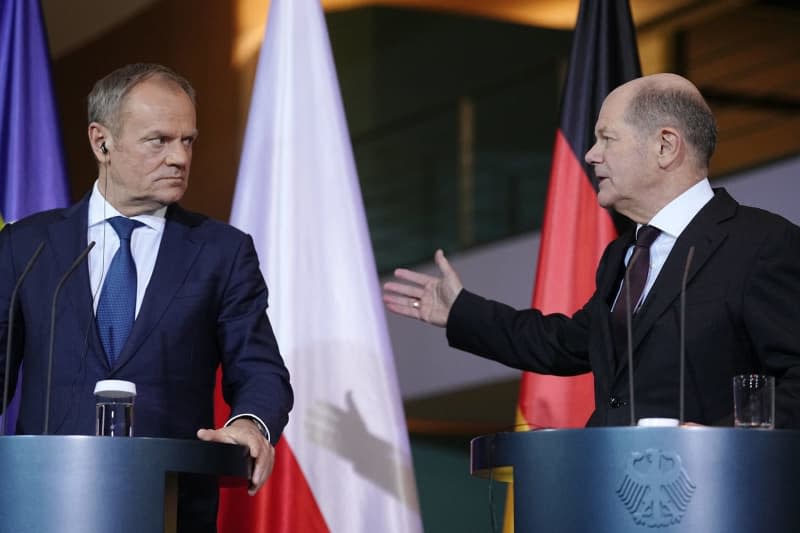Scholz warns against playing with Europe's security after Trump jibes

- Oops!Something went wrong.Please try again later.
- Oops!Something went wrong.Please try again later.
Following US presidential candidate Donald Trump's statements on NATO support, German Chancellor Olaf Scholz has reaffirmed the alliance's common defence.
"NATO'S promise of protection applies unreservedly. All for one. One for all," Scholz said on Monday in Berlin at a meeting with the new, pro-European Polish Prime Minister Donald Tusk.
Scholz went on to explain that he wanted to make it clear in light of the current situation: "Any relativization of NATO's guarantee of assistance is irresponsible and dangerous and is solely in Russia's interests. Nobody should play with Europe's security."
Trump, the presumptive Republican nominee for the November US election, said at a campaign event in the state of South Carolina on Saturday that he would "encourage" Russia "to do whatever the hell they want" to NATO countries that are not spending enough on defence.
Scholz also said at the press conference with Tusk that Germany and Poland were working together. Solidarity and joint action were indispensable.
The German chancellor said: "Especially at a time when Russia's imperialism is threatening our common security in Europe. That is why we stand up for each other in the EU and in NATO. This means, and this is very important to me, that Poland's security is also our security."
Tusk emphasized that the EU was superior to Russia in economic and financial terms. "It is certainly not the lack of money that will decide the fate of this war, this confrontation between Russia and Ukraine."
The EU's position when it comes to financing defence projects is privileged, Tusk said. "There is no reason why the world's largest economic and technological power, as the EU is, should not be efficient when it comes to armaments if it is threatened by an aggressive neighbour," Tusk said.
However, Tusk added, greater determination is needed to use Europe's wealth for security and defence.
"These statements are irresponsible and even play into Russia's hands," German President Frank-Walter Steinmeier said on Monday during a visit to the Cypriot capital Nicosia. "And nobody in our alliance can have any interest in that."
The German government made it clear that it continues to rely on a functioning alliance.
Trump's comments had "naturally been noted," deputy government spokeswoman Christiane Hoffmann said in Berlin.
At the same time, she emphasized: "In its security and defence policy, the German government clearly relies on the trans-Atlantic alliance and the trans-Atlantic community of values and sees its security guaranteed in NATO."
Estonian Prime Minister Kaja Kallas also reacted unimpressed to Trump's statements.
"I think what the presidential candidate in America says is also something to maybe wake up some of the allies who have not done that much. So hopefully we will all do more and and collectively we are stronger together," the head of government of the Baltic EU and NATO country bordering Russia said on Monday after a meeting with European Parliament President Roberta Metsola in Tallinn.
Metsola said more needed to be done in terms of individual countries' defence spending, but Europe would send a "clear message irrespective of who will lead the next American administration" that the EU is "strong enough to be able to defend each other."
Estonia recently increased its defence spending significantly against the backdrop of the Russian war in Ukraine and plans to spend 3.2% of its gross domestic product on this area this year.
Former German foreign minister Sigmar Gabriel said that Trump's statement was like an invitation to Russian President Vladimir Putin to test the defence alliance.
"He won't test us in Germany, but perhaps in the Baltic states," Gabriel warned on Deutschlandfunk public radio on Monday.
The chairman of the Munich Security Conference, Christoph Heusgen, said on Monday that Trump's demands for more defence spending are not surprising, as he already said that as US president "in his own unique way."



